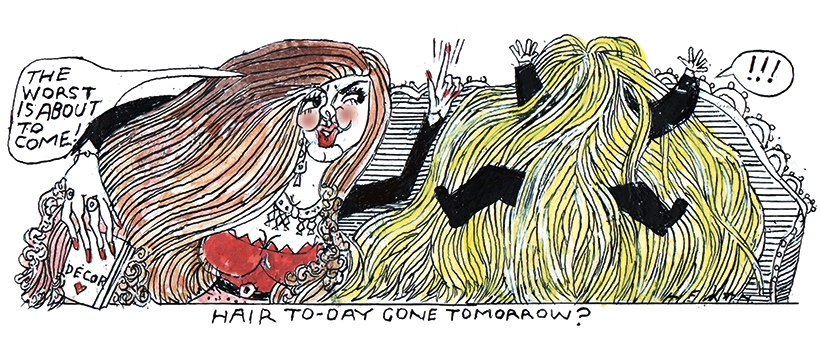Home
On the eve of the day that most coronavirus restrictions were to be lifted, the Prime Minister and Chancellor of the Exchequer had to react to having been in close contact with Sajid Javid, the Health Secretary, who, despite being doubly vaccinated, had contracted Covid. At first Boris Johnson said that under a pilot scheme he would continue to work at Downing Street. Within hours, during which Labour exploited the idea of privilege, he backtracked, declaring it was ‘far more important that everybody sticks to the same rules’. So he would isolate himself (at Chequers) until 26 July. In a trend called by the press a ‘pingdemic’, enterprises found themselves short of workers who had been ‘pinged’ by the NHS Covid app and advised to isolate (520,194 in the first week of July). Some fully vaccinated people in critical roles (not immediately identified) would be able to continue working even if told to self-isolate, the government intimated uncertainly. The FTSE share index fell below 7,000 at fears of a thwarted recovery.
In the seven days to the beginning of the week, 284 people had died with coronavirus, bringing the total of deaths (within 28 days of testing positive) to 128,683. (In the previous week deaths had numbered 192.) All adults had been offered a first vaccination, and 87.8 per cent had accepted; 67.9 per cent of the adult population had received two doses. Children over 12 at higher risk of becoming sick if they catch Covid would now be offered vaccination. The daily number of cases detected by tests rose from 32,367 to 54,674 in a week, and numbers remaining in hospital rose from 2,742 to 3,982. Of those admitted to hospital with Covid, 60 per cent were unvaccinated. Earlier, at the televised news briefing, Sir Patrick Vallance, the government’s chief scientific adviser, had said 60 per cent of them were doubly vaccinated, but he corrected himself on Twitter. From the end of September no one would be allowed into a nightclub without showing a vaccine passport.
Dominic Cummings had another go at Boris Johnson in an interview with Laura Kuenssberg, explaining that he had discussed getting rid of him as Prime Minister soon after the 2019 election: ‘We only got him in there because we had to solve a certain problem not because he was the right person to be running the country.’ The UK said how it wanted the Northern Ireland protocol of the Brexit trade agreement changed. Britain promised France another £53 million for policing after at least 430 migrants crossed the Channel in small craft on Monday alone, bringing the total for 2021 to more than the 8,461 for 2020.
Abroad
The total in the world reported to have died with coronavirus reached 4,045,911 by the beginning of the week, a rise of 58,731 from the week before. In Australia, where only about 12 per cent of adults are fully vaccinated, South Australian was put under a seven-day lockdown, bringing to about half the proportion of Australians ordered to stay at home. Floods killed at least 165 in Germany, with dozens unaccounted for. Toyota, an important sponsor of the Tokyo Olympics, decided not to attend the opening ceremony; the Games were to take place without spectators because of the pandemic.
China was accused by the United States, Britain, the European Union, New Zealand and Australia of protecting hackers who attacked Microsoft servers earlier this year, affecting 30,000 organisations. The Washington Post, the Guardian and Le Monde were among newspapers reporting that software called Pegasus, sold by an Israeli company NSO, had allowed disreputable governments to extract messages, photos and emails and to record the phone calls of thousands of people. Colonel Assimi Goïta, currently president of Mali after his second coup in a year, escaped with his life when some men tried to stab him at a mosque during prayers for Eid al-Adha. Ben & Jerry’s, the American ice-cream makers owned by Unilever, announced they would stop selling products in the West Bank or east Jerusalem for fear of giving comfort to Israeli settlers.
President Jair Bolsonaro of Brazil was discharged from hospital after suffering hiccups for ten days consequent on intestinal problems related to a stabbing in 2018. A week after an operation on his colon, Pope Francis, to the alarm of many, reversed his predecessor Pope Benedict’s liberalisation of rules for celebrating the Tridentine Mass, instead banning it in ordinary parish life. CSH





Comments